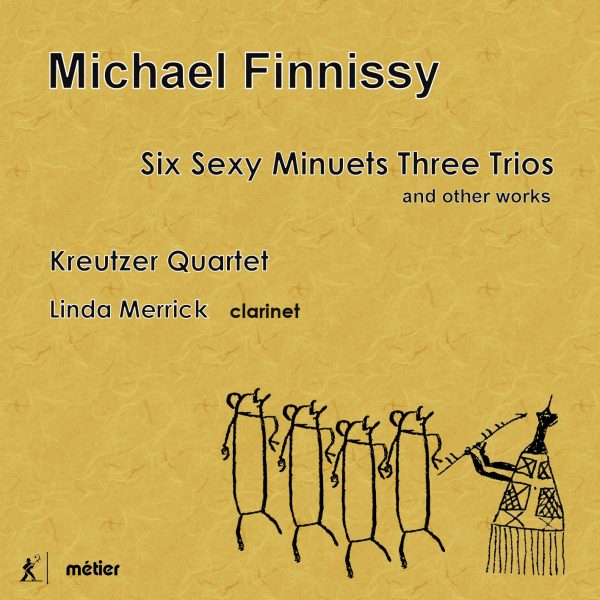Fanfare
This is another release that connects two ongoing Métier projects related to British musicians: the music of Michael Finnissy and the performing activities of the violinist Peter Sheppard Skærved.
PSS is the prime mover and first violinist of the Kreutzer Quartet. Besides being musical collaborators, Finnissy and PSS share a seemingly inexhaustible energy for new projects, and both are exceptionally prolific: Finnissy as composer (and in his earlier years as a pianist) and PSS as both a solo/chamber performing and recording artist. I’ve long been a fan of both their work; PSS champions such a wide breadth of composers that surely at least some of them will appeal to anyone (even if there are others that one is less enthusiastic about). But I certainly have no lack of enthusiasm for the music of Michael Finnissy (b. 1946) whose richly varied work I find extremely reflective of the current age in its huge expressive range and complete embrace of all musical possibilities: past, present, future. Though he has been grouped with “new complexity” composers at times, music (and notation) of extreme complexity is only one facet of Finnissy’s work. (One is just as likely in his work to find an unadorned solo line in simple note values as one is to find a page of dizzying nested tuplets.) It is, however, rather difficult music to describe. The many layers of detail to be found in his music have made it, for me, some of the most rewarding music to explore in repeated listenings.
Two of the pieces on this release (Civilisation and Six sexy minuets three trios) are large-scale string quartets. In his extensive liner notes, PSS discusses the inspiration and possible interpretations of the works in detail. They are representative of Finnissy’s art: the first exploring at some level what it means to think about something as “civilized”; the second is clearly a response to earlier music, especially the classical genre of minuet and trio. Many of Finnissy’s works have complex relationships to earlier music (of all periods), and his approach in this piece is typically varied, with the inclusion of “a free selection of household objects” that are played by the string players.
Clarinetist Linda Merrick joins the Kreutzers for the clarinet quintet she commissioned. Its title alludes to Schumann and the notion of the song cycle, but as PSS notes, the piece involves just as much “dance” as “song.” The other two works that fill up the disc are shorter pieces for quartet. Contrapunctus XIX is Finnissy’s continuation of Bach’s piece of the same name from The Art of Fugue.
For those who know and admire the work of Finnissy, this excellent disc should be self-recommending. For those who don’t but think they might be interested, it’s difficult to know where exactly to start. Finnissy has been most prolific in writing for piano (his own instrument), and it is likely that his remarkable body of literature for that instrument will be his most significant legacy. But his excellent works in nearly all other genres are important as well, and this CD I think is quite appealing.
@divineartrecordingsgroup
A First Inversion Company
Registered Office:
176-178 Pontefract Road, Cudworth, Barnsley S72 8BE
+44 1226 596703
Fort Worth, TX 76110
+1.682.233.4978












